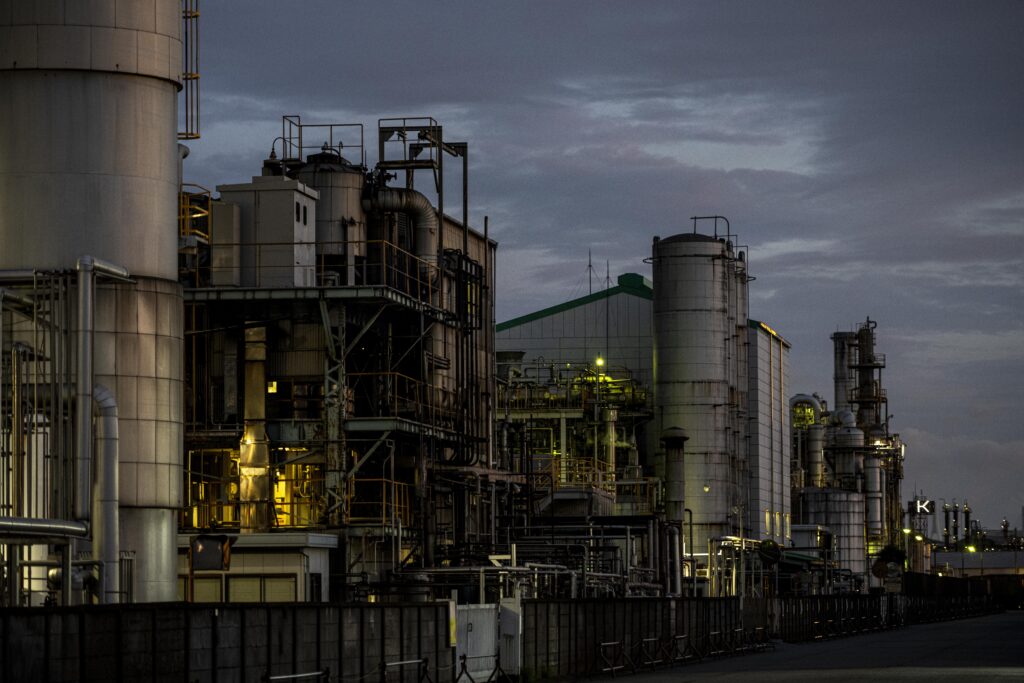WHAT ARE THE LARGEST INDUSTRIES IN MEXICO?
Mexico is a country with abundant natural resources, yet it is still an industrial-agrarian nation. The reason for this can be traced back to the 1950s, when the growth and development of the Mexican economy began in what was known as the “Mexican miracle”.
While Mexico has the potential to develop its industry with its rich mineral resources and well-developed agricultural sector, the country still faces challenges in achieving a fully developed industrial economy. Nonetheless, Mexico’s progress in various industries such as petrochemicals, mining, metallurgy, mechanical engineering, aerospace, construction materials, and the food industry have contributed to the overall growth of the economy.

Mining industry
Mexico has a significant presence in the mining industry, with three main mining areas located in the north, the Gulf Coast, and the central-west regions. The mining of minerals is largely controlled by the State and contributes significantly to the country’s budget revenues. Silver mining is a particular strength, making Mexico a leader in the industry. The country’s mineral resources include antimony, sulfur, mercury, gold, cadmium, bismuth, tin, copper, and tungsten. These minerals are of high quality and the country has significant reserves of silver, iron, and uranium. Manganese ore reserves are also plentiful in Mexico, with the country being among the leaders in the region. Additionally, the country has significant deposits of lead, zinc, and over two hundred mercury deposits, which allow Mexico to confidently occupy the 3rd position in the world.
Petrochemical industry
Mexico’s economy experienced significant growth from the extraction and processing of oil and gas reserves, leading to the development of the petrochemical industry. Initially, almost all production was controlled by PEMEX. However, the need for additional investments and infrastructure improvements allowed other companies to enter the market, leading to the modernization of oil refineries and chemical companies. Currently, the petrochemical industry includes fifteen industries, and in addition to fuel production, it has become competitive in the pharmaceutical and plastics production sectors.
Metallurgical industry
The metallurgical industry in Mexico is a vital part of the country’s economy. With high-quality composition extracted iron ores, the industry fully meets the local metal engineering needs. In fact, nearly half of the products of ferrous metallurgy are exported, highlighting the industry’s competitiveness and strength. Non-ferrous metallurgy is also a significant player in the industry, with rare earth metals extraction being a particular area of focus. As a result, the metallurgical industry plays a crucial role in Mexico’s economic development, serving as a valuable source of export revenue and local production.
Mechanical Engineering
Mexico has a diverse mechanical engineering industry that includes automotive, machine tools, agricultural machinery, and railroad cars. While many of these products are exported to the United States, the country also has its own domestic manufacturers, such as Mastrettadesign, which developed the Mastretta MXT super sports car. The automotive industry in particular is highly represented by large corporations such as General Motors, FORD, Chrysler, VW, Nissan, Toyota, Honda, BMW, and Mercedes Benz.
Aerospace industry
Mexico’s aerospace industry has been growing rapidly in recent years. While it mainly assembles foreign aircraft and manufactures control systems, the country also has a few in-house companies that dominate the production of a helicopter and a commercial jet aircraft. In addition, companies like Aeromarmi and Hydra Technology are making significant contributions to the industry by producing light propeller aircraft and unmanned vehicles respectively. Furthermore, Mexico’s achievements in the field are not limited to Earth, as a Mexican television satellite is currently in space orbit. As the industry continues to expand, it is expected to create more job opportunities and contribute to the country’s economy.
Construction materials
Mexico’s construction materials industry is a significant contributor to the country’s economy. The third largest cement producer in the world, the national conglomerate Cemex, produces more than fifty million tons of cement annually. Along with this, the glass industry is also well developed in the country. These industries play an essential role in meeting the demands of the construction industry, both domestically and abroad. With such a robust infrastructure, Mexico is well positioned to continue its growth in the construction and building materials sector.
Wood industry
The wood industry in Mexico has a rich history, with important reserves of natural resources. Unfortunately, in the past, uncontrolled deforestation led to the destruction of these reserves. Since the 1940s, a restoration program has been in place, resulting in a current volume of 25 million cubic meters. The most valuable species for industrial purposes are pine, red cedar, and oak. Although most of the cut timber is exported, some is used for the needs of the pulp and paper industry and the wood chemical industry, such as the production of tanning and dyeing reagents, bitumen, and rosin. In addition, Mexico is a world leader in gum juice production, with more than 80% of the global market share.
Food industry
Mexico has a diverse food industry with a focus on flour and tortilla production, as well as sugar, coffee, tequila, and Coca-Cola soft drinks. With 54 plants, Mexico is the second-largest producer of Coca-Cola in the world. However, the majority of food manufacturers in Mexico are multinational companies, with small local producers primarily responsible for the production of traditional local products.




